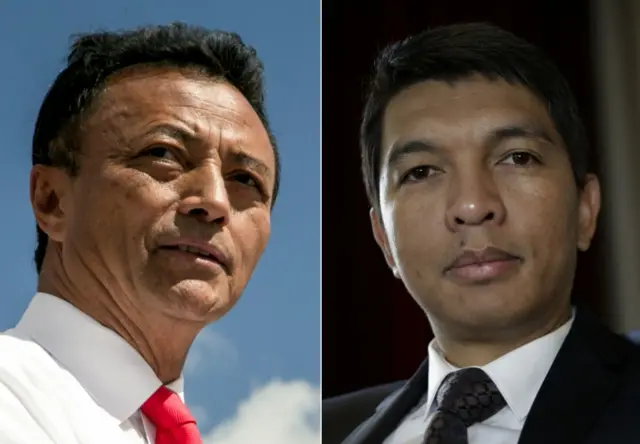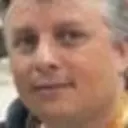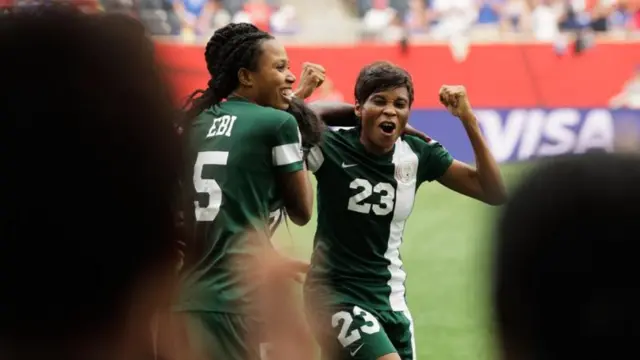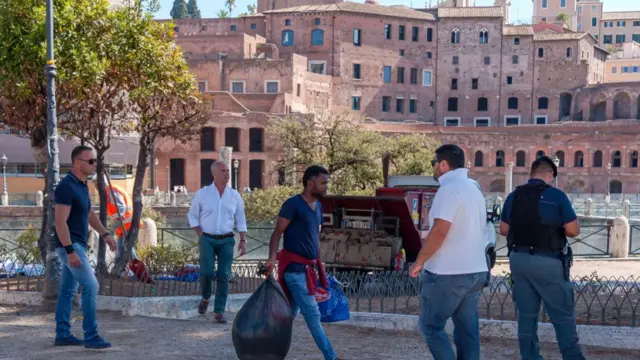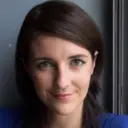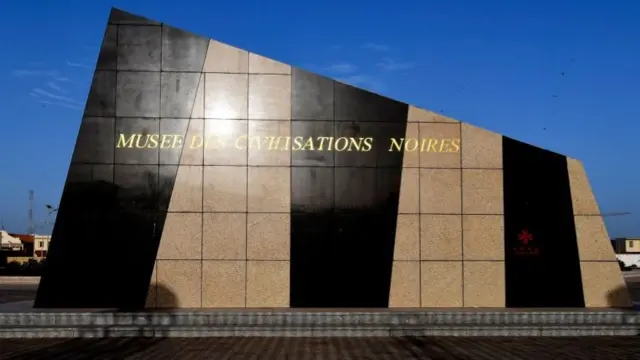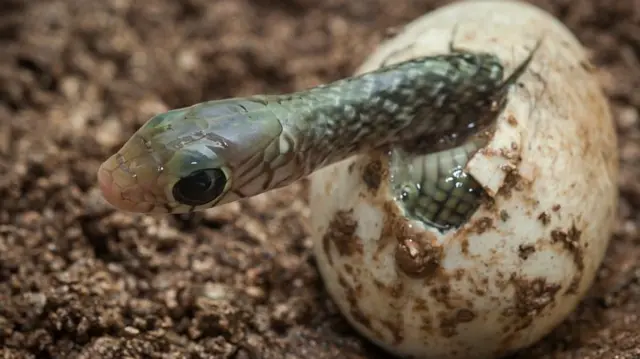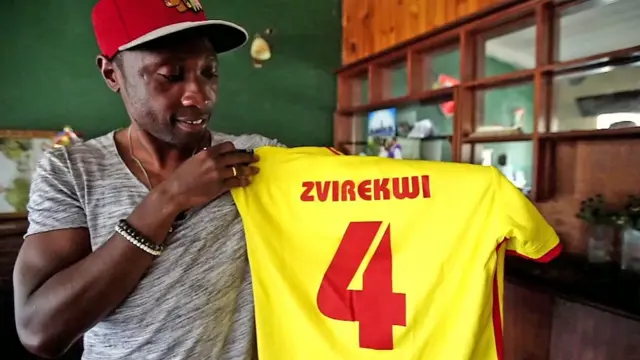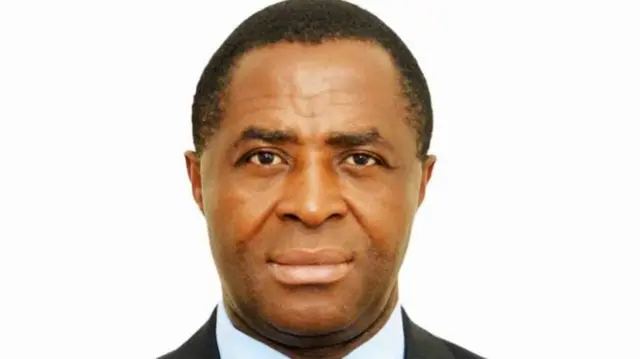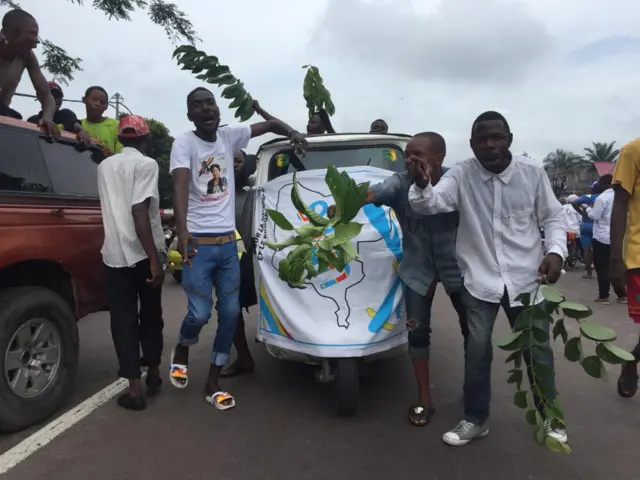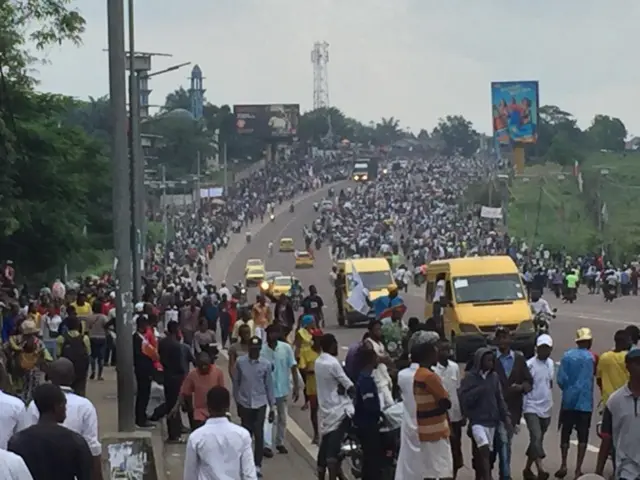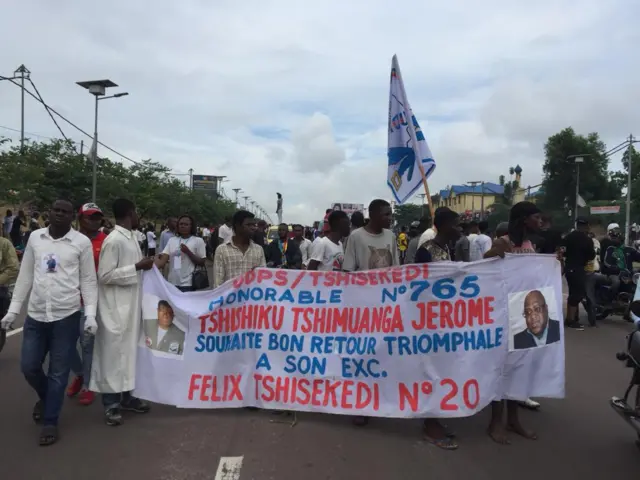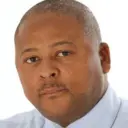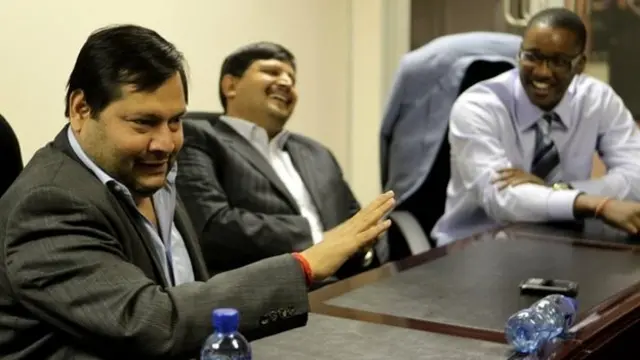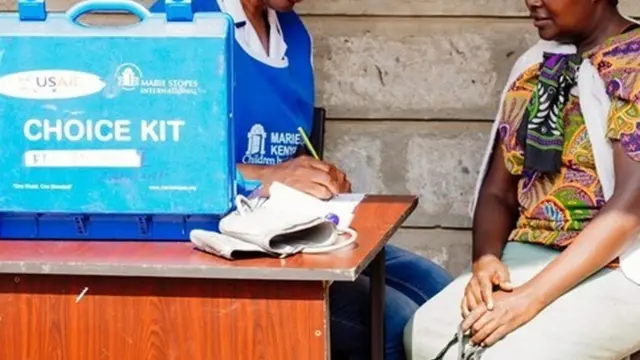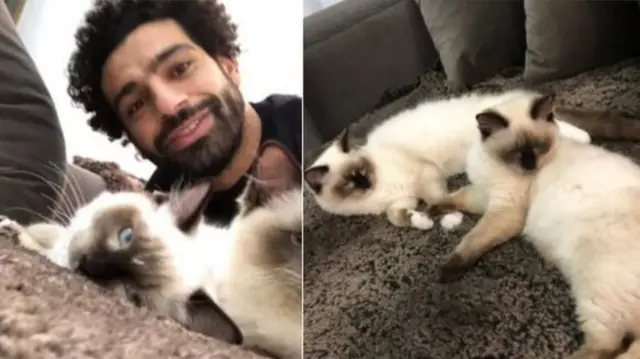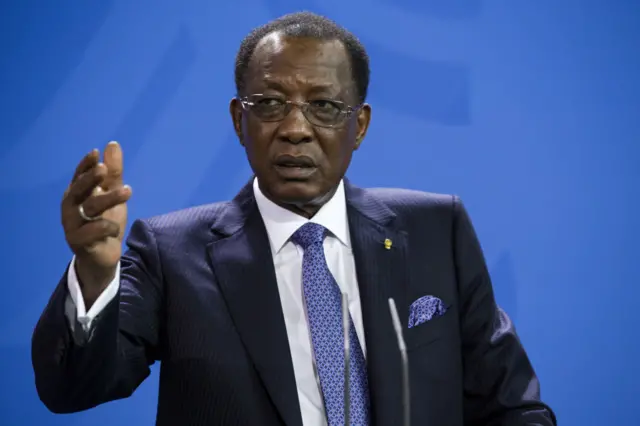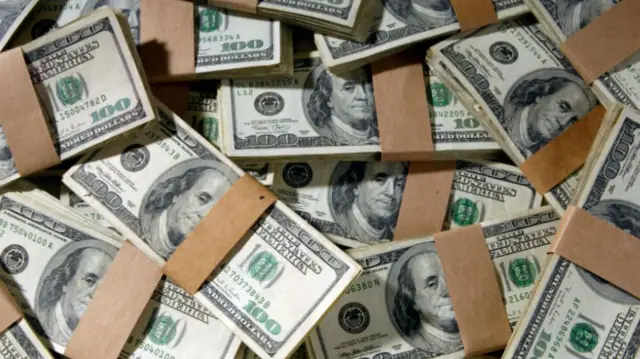Gabon's president to convalesce in Moroccopublished at 11:36 GMT 28 November 2018
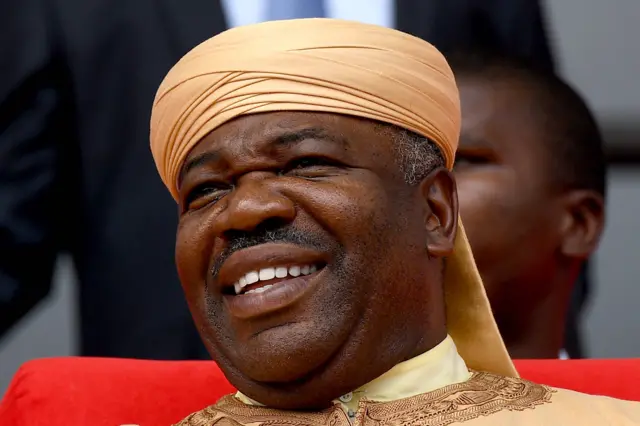 Image source, AFP
Image source, AFPAli Bongo converted to Islam, along with his father, in 1973
Gabon’s President Ali Bongo, who has been in hospital for more than a month in Saudi Arabia, is being transferred on Wednesday to the Moroccan capital, Rabat, to convalesce.
His wife Sylvia Bongo posted on social media that the transfer was possible because of a “significant improvement” in her husband’s health.
Allow X content?
This article contains content provided by X. We ask for your permission before anything is loaded, as they may be using cookies and other technologies. You may want to read X’s cookie policy, external and privacy policy, external before accepting. To view this content choose ‘accept and continue’.
The family was extremely grateful to Morocco’s King Mohammed VI for his invitation, she added.
Mr Bongo is thought to have suffered a stroke while on an official visit to the Saudi capital although there has been no official explanation of why he is seeking medical treatment.
Gabon’s government spokesman Guy-Bertrand Mapangou told BBC Afrique the 59-year-old’s health was so improved that, should he want to, he could begin work by meeting his chiefs of staff.
“The president is doing better and better. We will even say that he is better," he said.
Mr Bongo was sworn in for a second seven-year term in September 2016, after a bitterly disputed election in the oil-rich nation.
He took over from his late father Omar Bongo, who had ruled Gabon for 41 years until his death in 2009.

